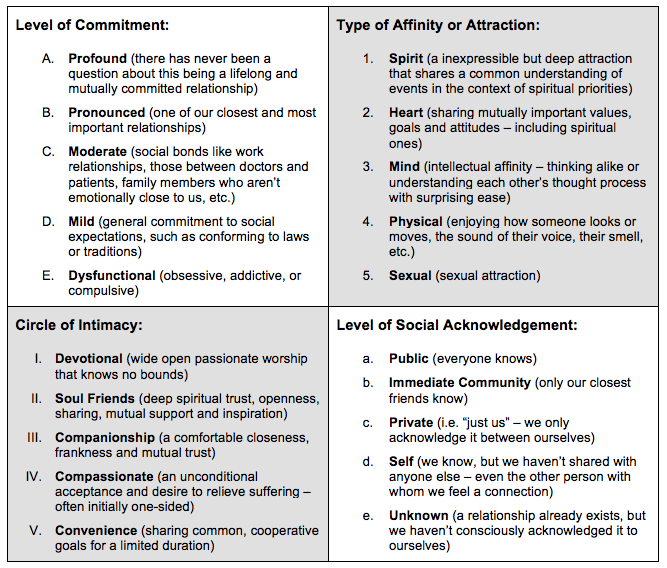When is a conservatorship necessary?
Posted by T.Collins Logan on
This is a very difficult topic. I resisted conservatorship for my own mom when she began to show signs of dementia. I wanted to respect her independence and agency. Unfortunately, over the course of two years, she was victimized by numerous scams that depleted all of her supplemental income, and ran up a large amount of debt. She then began to have difficulty caring for herself physically. Initially, I took the route of adding some in-home support for her (she was still living in her own house at the time) — help with errands, nurse visits to monitor her medications and blood sugar, help with bathing, and so on. But those in-home resources began to report increasing concern about my mom’s behaviors and risk (leaving the stove on, leaving the front door open in winter, hostile outbursts, eating foods that made her conditions worse, poor personal hygiene, and so on). My mom did not seem to be “losing it,” she seemed okay to me. But I was in denial.
Then she had a stroke — one that was very likely caused by her poor compliance with diabetes treatment and diet.
After initial hospitalization and rehab, my mom returned home. Her stroke still wasn’t enough to convince me she couldn’t be independent, and she was still very high functioning. In discussing the situation with my mom she also made it clear the she wanted to “die at home” and didn’t want to move into assisted living or have more controls put on her life. She had always lived as a free spirit, and so this all made sense to me.
Then I discovered the scams, debt, and loss of resources — but only when my mom started to ask me for money. She had elaborate excuses about what had happened to her income, but eventually admitted that, in addition to clearing out all of her reverse mortgage, she was cashing her Social Security check each month and giving that to the scammers (in its entirety) as well. She didn’t see anything wrong with any of this, because….
She was told she had won two million dollars and a Mercedes, and that she needed to pay taxes on the prizes in order to receive her money and new car.
No matter how I tried to convince her that this was obviously a scam, she couldn’t be reasoned with. She was sure she had won a prize. She had even gone down to a local police station to show them the letter and complain about not receiving her winnings. And although the police then became aware of the fact she was being scammed, they could do nothing. When I spoke with them, they said “she is a willing party…unless she files a complaint herself, we can’t go after these scammers.” Apparently, this sort of scam on the elderly is reaching epidemic proportions in the U.S.A.
So, finally, the critical mass of red flags got through my denial, as my mom was now:
1. Not managing her chronic health conditions at all, and putting herself at risk.
2. Not managing her money at all, and not able to pay bills or buy food.
3. Not able to keep herself or her house clean.
4. Giving her money away — anytime she received any income (including from selling her beloved jewelry and collected art at a pawn shop!), she would call the scammers immediately to pay them. The scammers would then send a cab to pick up the money, sometimes even driving my mom to the bank or a Walmart to cash a check. It was insidious and constant. And if my mom wasn’t delivering, the scammers would call my mom ten or fifteen times each day to bully her into giving them more money.
So I called adult services (the “elder abuse” department) for the state and asked what I could do. The social worker there was amazing. She helped me jump through all of the hoops necessary to get my mom into conservatorship. Thankfully, my mom still trusted me enough that she agreed to one voluntarily. However, working with a local senior center in town, I was also able to have her assessed by a psychiatrist who confirmed the dementia diagnosis and evidence of incapacity to manage her financial affairs. This was a key step, and would have been even more necessary if my mom had not voluntarily entered conservatorship.
At first, I tried a third party conservator who lived in my mom’s town — I live on the other side of the U.S. so this seemed to make good sense. Unfortunately, the conservator, a former law enforcement officer, was almost as bad as the scammers and provided no services at all in exchange for high fees. This included not paying my mother’s bills, which sent everything into a deeper downward spiral.
Eventually, I had to become my mom’s conservator myself. This involved yet another trip to probate court and another authorization for me to become “conservator of person and estate” for my mom. Again, this was voluntary. It would have been much more difficult had my mom not allowed it voluntarily.
I then embarked on a year of daily management of my mom’s health and finances. If I had not become her conservator, she would have ended up on the street or worse…and I likely wouldn’t have found out until it was too late to help. Now she is in a dementia care facility and doing fairly well — and that transition, too, would likely not have happened had I not been involved in her care. As her dementia progressed, my mom’s confusion and aggressive behaviors were putting her at substantial risk. She needed 24/7 care.
But that didn’t mean I didn’t feel guilty about “putting her in a nursing home,” which was exactly what she said she didn’t want. I felt terrible, especially because in her first few weeks all she could do was beg to be taken home. You could say the final vindication for the decision to move her into care came when she had a serious cardiac event that required bypass surgery. Had she not been in care, she would have died two years ago. Right now, she is doing well, and I can visit her via video chat. She doesn’t know who I am anymore, but she always smiles and is delighted to see a face she at least knows is familiar and kind to her. Her old friends who all live nearby occasionally come to visit her, too, and that always brings her joy in-the-moment as well. And, a bit surprisingly, she loves the food at the facility and some of the activities there, like bowling.
So, via this not-easy-and-simple answer, I hope I have conveyed how difficult the conservatorship decision — and process — can be. There have been lots of other hiccups, too, such as making sure my mom’s financial resources continue to be managed so that her care can be paid for. There have been other medical crises. There have been psychiatric crises. There have been challenges dealing with Social Security, Medicare Part B insurance, and so on. It really never ends, and it is never easy. But my mom could not have navigated any of this herself.
I hope this was helpful.
Then she had a stroke — one that was very likely caused by her poor compliance with diabetes treatment and diet.
After initial hospitalization and rehab, my mom returned home. Her stroke still wasn’t enough to convince me she couldn’t be independent, and she was still very high functioning. In discussing the situation with my mom she also made it clear the she wanted to “die at home” and didn’t want to move into assisted living or have more controls put on her life. She had always lived as a free spirit, and so this all made sense to me.
Then I discovered the scams, debt, and loss of resources — but only when my mom started to ask me for money. She had elaborate excuses about what had happened to her income, but eventually admitted that, in addition to clearing out all of her reverse mortgage, she was cashing her Social Security check each month and giving that to the scammers (in its entirety) as well. She didn’t see anything wrong with any of this, because….
She was told she had won two million dollars and a Mercedes, and that she needed to pay taxes on the prizes in order to receive her money and new car.
No matter how I tried to convince her that this was obviously a scam, she couldn’t be reasoned with. She was sure she had won a prize. She had even gone down to a local police station to show them the letter and complain about not receiving her winnings. And although the police then became aware of the fact she was being scammed, they could do nothing. When I spoke with them, they said “she is a willing party…unless she files a complaint herself, we can’t go after these scammers.” Apparently, this sort of scam on the elderly is reaching epidemic proportions in the U.S.A.
So, finally, the critical mass of red flags got through my denial, as my mom was now:
1. Not managing her chronic health conditions at all, and putting herself at risk.
2. Not managing her money at all, and not able to pay bills or buy food.
3. Not able to keep herself or her house clean.
4. Giving her money away — anytime she received any income (including from selling her beloved jewelry and collected art at a pawn shop!), she would call the scammers immediately to pay them. The scammers would then send a cab to pick up the money, sometimes even driving my mom to the bank or a Walmart to cash a check. It was insidious and constant. And if my mom wasn’t delivering, the scammers would call my mom ten or fifteen times each day to bully her into giving them more money.
So I called adult services (the “elder abuse” department) for the state and asked what I could do. The social worker there was amazing. She helped me jump through all of the hoops necessary to get my mom into conservatorship. Thankfully, my mom still trusted me enough that she agreed to one voluntarily. However, working with a local senior center in town, I was also able to have her assessed by a psychiatrist who confirmed the dementia diagnosis and evidence of incapacity to manage her financial affairs. This was a key step, and would have been even more necessary if my mom had not voluntarily entered conservatorship.
At first, I tried a third party conservator who lived in my mom’s town — I live on the other side of the U.S. so this seemed to make good sense. Unfortunately, the conservator, a former law enforcement officer, was almost as bad as the scammers and provided no services at all in exchange for high fees. This included not paying my mother’s bills, which sent everything into a deeper downward spiral.
Eventually, I had to become my mom’s conservator myself. This involved yet another trip to probate court and another authorization for me to become “conservator of person and estate” for my mom. Again, this was voluntary. It would have been much more difficult had my mom not allowed it voluntarily.
I then embarked on a year of daily management of my mom’s health and finances. If I had not become her conservator, she would have ended up on the street or worse…and I likely wouldn’t have found out until it was too late to help. Now she is in a dementia care facility and doing fairly well — and that transition, too, would likely not have happened had I not been involved in her care. As her dementia progressed, my mom’s confusion and aggressive behaviors were putting her at substantial risk. She needed 24/7 care.
But that didn’t mean I didn’t feel guilty about “putting her in a nursing home,” which was exactly what she said she didn’t want. I felt terrible, especially because in her first few weeks all she could do was beg to be taken home. You could say the final vindication for the decision to move her into care came when she had a serious cardiac event that required bypass surgery. Had she not been in care, she would have died two years ago. Right now, she is doing well, and I can visit her via video chat. She doesn’t know who I am anymore, but she always smiles and is delighted to see a face she at least knows is familiar and kind to her. Her old friends who all live nearby occasionally come to visit her, too, and that always brings her joy in-the-moment as well. And, a bit surprisingly, she loves the food at the facility and some of the activities there, like bowling.
So, via this not-easy-and-simple answer, I hope I have conveyed how difficult the conservatorship decision — and process — can be. There have been lots of other hiccups, too, such as making sure my mom’s financial resources continue to be managed so that her care can be paid for. There have been other medical crises. There have been psychiatric crises. There have been challenges dealing with Social Security, Medicare Part B insurance, and so on. It really never ends, and it is never easy. But my mom could not have navigated any of this herself.
I hope this was helpful.






